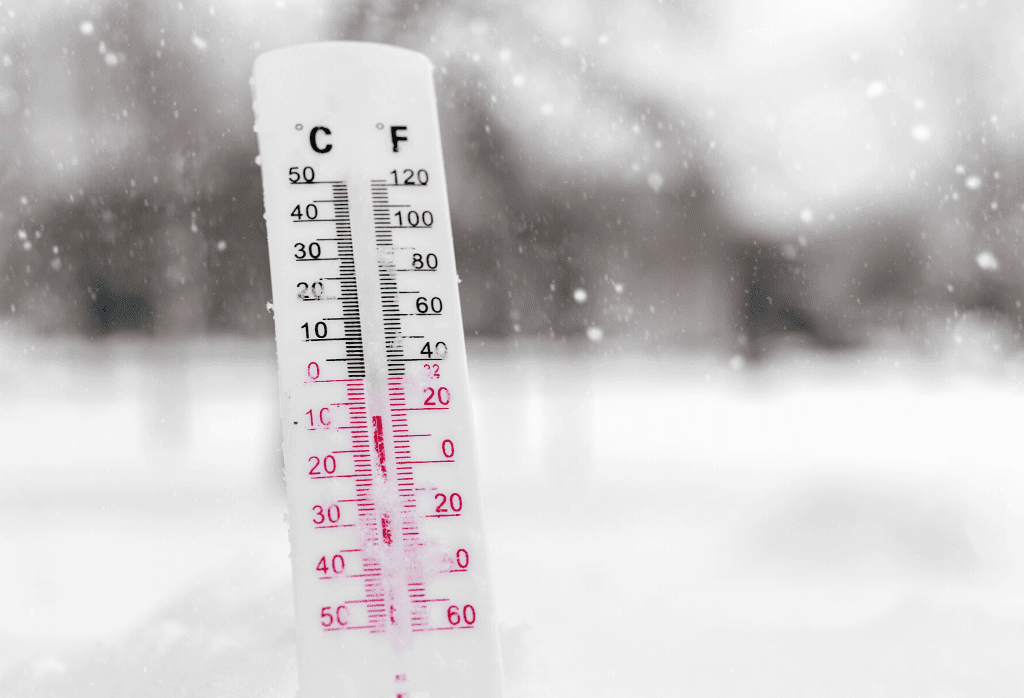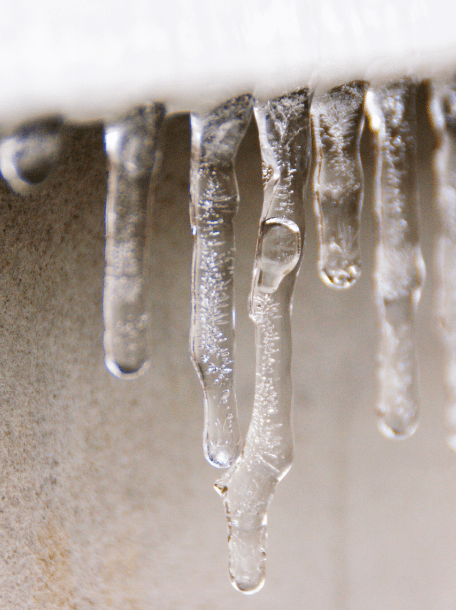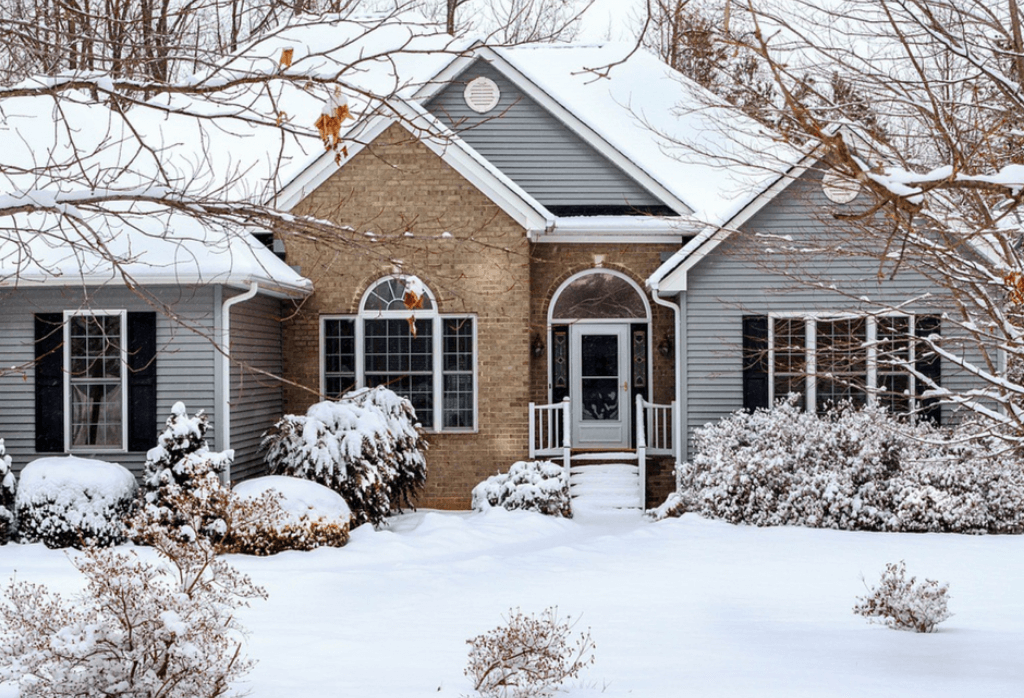Defend Your Home Against Winter Damage
Tips To Protect your home from winter weather
Predictions are everywhere – a long, cold, hard winter is on the way! From coast to coast, a predicted change in weather patterns will bring more cold and snow than in the past several seasons.
As you prepare for Winter, here are several tips that can help prevent damage to your home and property.
Do what you can to keep pipes warm, especially on exterior walls. Preventing a frozen pipe and the resulting mess it creates can be as simple as leaving cabinet doors open an inch or two; again, near exterior walls. Some folks wrap pipes with foam sleeves and insulation. It doesn’t take much at all to prevent a pipe from freezing.


Don’t allow gutter drains to deposit runoff next to your foundation. In winter, freezing and thawing after a heavy snow or winter rain can be a real problem. Water that is allowed to spill out of drain pipes next to home foundations can build, and seep in overtime. This can ruin the foundation and basement walls, leading to cracks and leaks. Move the drain exit as far away from the foundation as possible. Where that cannot be done, use a splash deflector to send drain water at least three feet from the foundation.
Be sure to shut off outside faucets. Allowing water to remain in exterior pipes leading to faucets that are exposed to sub-freezing temperatures is bound to result in frozen faucets and potential breaks in the pipe. So, drain the faucet before temperatures drop below freezing. Some homeowners employ insulated faucet covers as an added measure of protection.
Don’t burn unseasoned wood in the fireplace. Dry wood, especially hardwood like oak and apple will burn clean, leaving minimal deposits in the chimney. Unseasoned or wet wood will smoke, allowing the buildup of creosote and potentially blocking the chimney and causing smoke to back up into the home or even catch fire.
Use non-metallic shovels on concrete drives and sidewalks. A metal shovel can chip, scratch and damaged concrete surfaces. In some cases, using a metal shovel can literally discolor the concrete, leaving an unsightly appearance when the snow melts.
Avoid harsh de-icing products on concrete. While there are a number of effective de-icing products on the market, some actually eat away at the concrete in your sidewalks and driveways. In most cases, sprinkling everyday play box sand is sufficient to provide a reasonable walking or driving surface.
Clean your window wells in the fall, before leaves and other debris freezes in the well. Trapped and frozen water in a dirty window well can be a real source of over-winter damage where the well meets the home’s foundation. A well-constructed window well will not allow this to occur. Still, it makes sense to clean out leaves and debris before winter sets in.
Click here for more information.
Join Our Free Lawn Care Newsletter
Stay Up to Date With The Latest News & Updates
* We don’t share your info with anyone ever.



